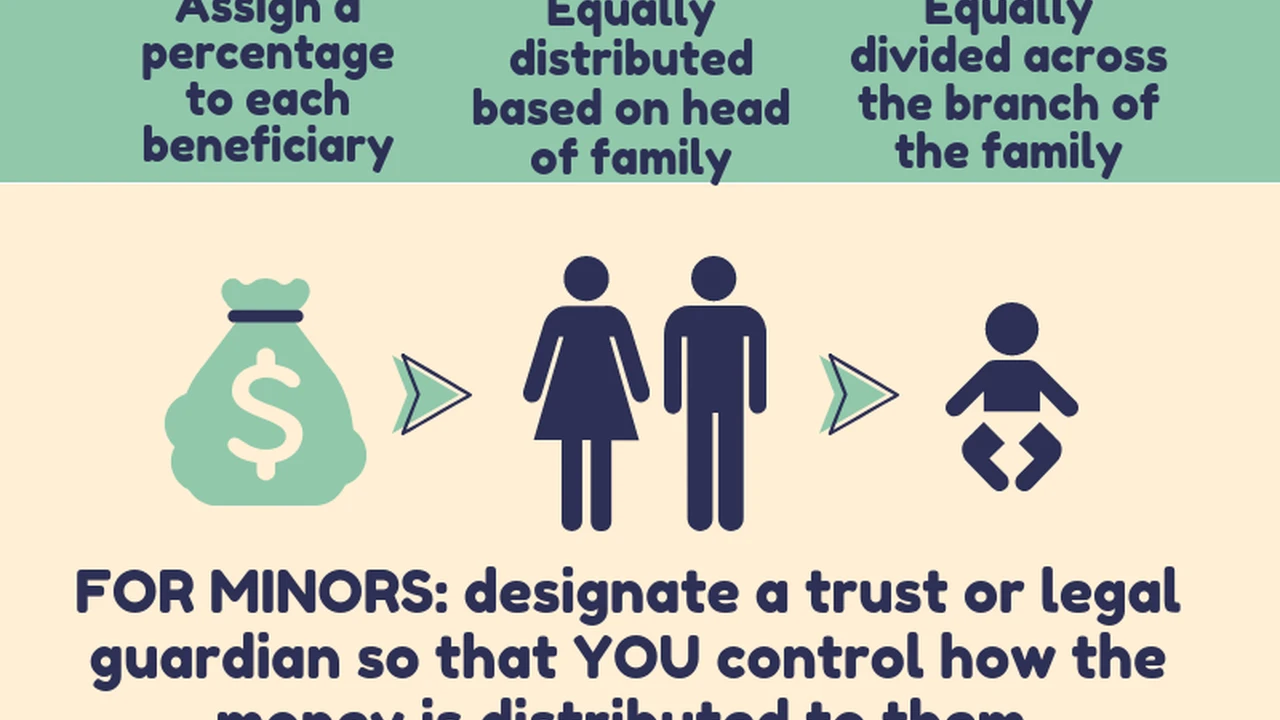Health Savings Account (HSA): A Guide
Learn a step-by-step guide on how to file a travel insurance claim, gather necessary documentation, and understand the process to receive the settlement you deserve. Get expert tips and advice for a successful travel insurance claim.
: A Guide.webp)
Understanding Your Travel Insurance Policy for a Successful Claim
Okay, so you've had a trip go sideways. Nobody wants that, but hey, that's why you got travel insurance in the first place, right? Before you dive headfirst into filing a claim, the very first thing you gotta do is dust off that policy and actually read it. I know, I know, it's boring. But trust me, understanding your coverage inside and out is crucial. Look for the sections on what's covered (and just as importantly, what's *not* covered – those exclusions are sneaky!). Pay close attention to the limits of coverage for each category, like medical expenses, lost luggage, trip cancellation, and delays. Knowing this beforehand will save you a ton of headaches down the road. Think of it like this: you wouldn't try to fix your car without knowing what tools you need, would you? Your policy is your toolbox for a successful claim. Also, keep an eye out for any specific requirements or deadlines for reporting incidents. Some policies require you to notify them within 24 hours of a lost item, for example. Missing these deadlines could jeopardize your claim. Finally, make sure you understand the deductible. This is the amount you'll have to pay out-of-pocket before the insurance kicks in. Knowing your deductible will help you decide if filing a claim is even worth it for smaller losses.
Gathering Essential Documentation for Your Travel Insurance Claim
Alright, you've read your policy, you know what you're covered for. Now comes the fun part: gathering all the documents you'll need to support your claim. Think of this as building your case. The more evidence you have, the stronger your claim will be. Here's a checklist of documents you'll likely need, depending on the type of claim you're filing:
- Your Travel Insurance Policy: Obvious, right? Keep a copy handy.
- Proof of Travel: This could be your airline tickets, cruise confirmation, hotel reservations, tour bookings – anything that proves you were actually on the trip.
- Medical Records (for medical claims): This is super important. Get copies of all doctor's notes, hospital bills, lab results, and prescriptions related to your illness or injury. Make sure they're translated into English if necessary.
- Police Report (for theft or loss): If your belongings were stolen, file a police report immediately. Get a copy of the report and keep it safe.
- Airline or Transportation Carrier Documentation (for delays or lost luggage): If your flight was delayed or your luggage was lost, get documentation from the airline or transportation carrier explaining the reason for the delay or loss. This could be a delay notification email or a lost luggage claim form.
- Receipts and Proof of Ownership (for lost or damaged items): This is where things get tricky. Try to keep receipts for valuable items you're traveling with. If you don't have receipts, you can use credit card statements, photos, or even appraisals to prove ownership and value.
- Trip Interruption/Cancellation Documentation: If you had to cut your trip short or cancel it altogether due to a covered reason (like illness or a natural disaster), get documentation to support your claim. This could be a doctor's note, a news report, or a letter from your employer.
- Other Supporting Documents: Depending on the specific circumstances of your claim, you may need other supporting documents. For example, if you're claiming for rental car damage, you'll need a copy of the rental agreement and the damage report.
Pro Tip: Make copies of *everything* before you submit it. You don't want to lose your only proof. And keep all your documents organized in a folder or binder. It'll make the claims process much easier.
Filing Your Travel Insurance Claim The Right Way
Okay, you've got all your ducks in a row. You've read your policy, you've gathered your documents. Now it's time to actually file your claim. Here's how to do it:
- Contact Your Insurance Company: The first step is to contact your insurance company and let them know you need to file a claim. You can usually do this online, by phone, or by mail. Check your policy for the correct contact information.
- Get a Claim Form: The insurance company will send you a claim form to fill out. You can usually download it from their website as well.
- Fill Out the Claim Form Completely and Accurately: This is super important. Read the instructions carefully and answer all the questions truthfully. Don't leave anything blank. If you're not sure about something, contact the insurance company for clarification.
- Attach All Supporting Documents: Make sure you attach all the supporting documents you gathered earlier. Don't send originals – send copies.
- Submit Your Claim: Once you've filled out the claim form and attached all the supporting documents, submit your claim to the insurance company. You can usually do this online, by mail, or by fax. Check your policy for the correct submission instructions.
- Keep a Record of Everything: Keep a copy of the claim form and all the supporting documents you submitted. Also, keep a record of all communication with the insurance company, including dates, times, and names of people you spoke with.
Pro Tip: Be honest and upfront with the insurance company. Don't try to exaggerate your losses or provide false information. This could invalidate your claim and even lead to legal trouble.
Following Up and Negotiating Your Travel Insurance Settlement
You've submitted your claim. Now the waiting game begins. Insurance companies can take some time to process claims, so be patient. However, don't just sit back and wait. Here's how to follow up and potentially negotiate your settlement:
- Follow Up Regularly: Contact the insurance company every few weeks to check on the status of your claim. Ask for an estimated processing time. Keep a record of all your follow-up calls or emails.
- Understand the Insurance Company's Decision: Once the insurance company has reviewed your claim, they'll send you a letter explaining their decision. This letter will either approve your claim, deny your claim, or offer a settlement amount. Read the letter carefully and understand the reasons for their decision.
- Negotiate if Necessary: If you disagree with the insurance company's decision, you have the right to negotiate. This is especially common if they've offered a settlement amount that you feel is too low. To negotiate effectively, you need to:
- Understand the Value of Your Loss: Do your research and determine the fair market value of your loss. For example, if you're claiming for lost luggage, find out the cost of replacing the items that were lost.
- Present Your Case Clearly and Concisely: Explain why you disagree with the insurance company's decision and provide evidence to support your position. Be polite but firm.
- Be Willing to Compromise: Negotiations often involve compromise. Be prepared to meet the insurance company halfway.
- Consider Appealing the Decision: If you're unable to reach a settlement with the insurance company, you may have the right to appeal their decision. Check your policy for the appeals process.
Pro Tip: Don't be afraid to get help. If you're having trouble with your claim, consider hiring a public adjuster or an attorney who specializes in insurance claims. They can help you navigate the claims process and negotiate with the insurance company on your behalf.
Common Reasons for Travel Insurance Claim Denials and How to Avoid Them
Sadly, not all travel insurance claims are approved. Knowing the common reasons for denials can help you avoid them in the first place:
- Pre-Existing Medical Conditions: Many travel insurance policies exclude coverage for pre-existing medical conditions unless you specifically declare them and pay an extra premium. Always disclose any pre-existing conditions when you purchase your policy.
- Exclusions in the Policy: As mentioned earlier, travel insurance policies have exclusions. Make sure you understand what's *not* covered before you travel. Common exclusions include acts of war, participation in illegal activities, and extreme sports.
- Failure to Provide Sufficient Documentation: The insurance company needs evidence to support your claim. If you don't provide enough documentation, your claim may be denied.
- Failure to Report the Incident Promptly: Many policies require you to report incidents within a certain timeframe. If you wait too long to report, your claim may be denied.
- Intoxication or Drug Use: If your loss was caused by intoxication or drug use, your claim will likely be denied.
- Traveling Against Medical Advice: If you travel against the advice of your doctor, your claim may be denied if you experience a medical emergency.
Pro Tip: Read the fine print! Understanding your policy's exclusions and requirements is the best way to avoid claim denials.
Specific Travel Insurance Products and Claim Scenarios Examples and Costs
Let's look at some specific travel insurance products and how the claim process might work in different scenarios. Remember that prices can vary widely based on your age, destination, trip length, and coverage level. These are just examples to give you a general idea.
1. Comprehensive Travel Insurance (Trip Cancellation, Medical, Luggage)
Product Example: World Nomads Explorer Plan
Scenario: You booked a trip to Europe for two weeks. A week before your departure, you contract a severe case of the flu and your doctor advises you not to travel. You have a comprehensive travel insurance policy.
Claim Process:
- Notify the Insurance Company: Contact World Nomads immediately to inform them about the trip cancellation.
- Gather Documentation: Obtain a doctor's note stating that you are unfit to travel due to the flu. Collect all receipts for non-refundable trip expenses like flights, hotels, and tours.
- File the Claim: Submit the claim form along with the doctor's note and receipts to World Nomads.
- Insurance Review: World Nomads reviews your claim to ensure it meets the policy’s terms and conditions for trip cancellation due to illness.
- Settlement: If approved, World Nomads reimburses you for the non-refundable trip expenses, up to the policy’s limit.
Estimated Cost: $150 - $300 for a two-week trip to Europe.
2. Medical Travel Insurance
Product Example: IMG Patriot America Plus
Scenario: While on vacation in Costa Rica, you suffer a broken leg and require emergency medical treatment, including surgery and hospitalization.
Claim Process:
- Seek Medical Attention: Get immediate medical treatment at a local hospital or clinic.
- Notify the Insurance Company: Contact IMG as soon as possible to inform them about the medical emergency. They can help coordinate direct billing with the hospital.
- Gather Documentation: Collect all medical records, bills, and receipts related to the treatment.
- File the Claim: Submit the claim form along with the medical documentation to IMG.
- Insurance Review: IMG reviews the claim to ensure the medical treatment is covered under the policy.
- Settlement: If approved, IMG pays the medical expenses directly to the hospital or reimburses you for any out-of-pocket costs.
Estimated Cost: $50 - $100 for a two-week trip, depending on age and coverage limits.
3. Luggage and Personal Belongings Insurance
Product Example: Allianz Travel Insurance (Trip Protector Plan)
Scenario: Your luggage is lost by the airline during a connecting flight. It contains clothing, electronics, and personal items.
Claim Process:
- Report the Loss: File a lost luggage claim with the airline immediately and obtain a reference number.
- Gather Documentation: Collect the airline's lost luggage report, receipts for the lost items, and any other proof of ownership.
- File the Claim: Submit the claim form along with the airline report and receipts to Allianz.
- Insurance Review: Allianz reviews the claim to determine the value of the lost items and ensure they are covered under the policy.
- Settlement: If approved, Allianz reimburses you for the value of the lost items, up to the policy’s limit. Note that depreciation may be applied.
Estimated Cost: Included in a comprehensive plan, or around $30 - $50 as an add-on to a basic plan.
4. Trip Delay Insurance
Product Example: Travel Guard Essential Plan
Scenario: Your flight is delayed by 24 hours due to severe weather, causing you to miss a pre-paid tour and incur additional expenses for accommodation and meals.
Claim Process:
- Obtain Delay Documentation: Get written confirmation from the airline about the reason and duration of the delay.
- Gather Documentation: Collect receipts for additional expenses like accommodation, meals, and the cost of the missed tour.
- File the Claim: Submit the claim form along with the airline confirmation and receipts to Travel Guard.
- Insurance Review: Travel Guard reviews the claim to verify the delay and ensure the expenses are covered under the policy.
- Settlement: If approved, Travel Guard reimburses you for the additional expenses and the cost of the missed tour, up to the policy’s limit.
Estimated Cost: Usually included in comprehensive plans, or available as an add-on for about $20 - $40.
5. Rental Car Insurance
Product Example: Offered by most major travel insurance companies and sometimes directly by rental car agencies.
Scenario: While driving a rental car in Italy, you get into a minor accident causing damage to the vehicle. You have rental car insurance as part of your travel insurance policy.
Claim Process:
- Report the Accident: Report the accident to the rental car company and obtain a damage report. Also, file a police report if required by local law.
- Gather Documentation: Collect the rental agreement, damage report, police report (if applicable), and photos of the damage.
- File the Claim: Submit the claim form along with the rental agreement, damage report, and other supporting documents to your travel insurance provider.
- Insurance Review: The insurance company reviews the claim to verify the damage and ensure it is covered under the policy.
- Settlement: If approved, the insurance company pays for the cost of the repairs or the replacement value of the rental car, up to the policy’s limit.
Estimated Cost: $10 - $20 per day, often cheaper than purchasing directly from the rental car agency.
Important Considerations:
- Policy Limits: Always check the policy limits for each type of coverage to ensure they are adequate for your needs.
- Exclusions: Be aware of any exclusions in the policy, such as pre-existing medical conditions, extreme sports, or travel to certain destinations.
- Deductibles: Understand the deductible amount and how it will affect your claim.
- Claim Deadlines: Adhere to the claim deadlines specified in the policy to avoid claim denials.
Travel Insurance Claim Filing Tips for a Smoother Process
Here are some extra tips to make the claim filing process easier and increase your chances of a successful outcome:
- Be Organized: Keep all your travel documents, receipts, and insurance information in one place.
- Take Photos: Take photos of your luggage and valuable items before you travel. This can help prove ownership and value if they are lost or stolen.
- Report Incidents Immediately: Report any incidents (like theft or loss) to the appropriate authorities as soon as possible.
- Keep Detailed Records: Keep a detailed record of all communication with the insurance company.
- Be Persistent: Don't give up if your claim is initially denied. Appeal the decision and provide additional documentation if necessary.
- Read Reviews: Before purchasing a travel insurance policy, read reviews from other travelers to see what their experience has been like.
- Compare Policies: Don't just buy the first policy you see. Compare policies from different insurance companies to find the best coverage at the best price.
Filing a travel insurance claim can be a stressful process, but by following these steps and being prepared, you can increase your chances of a successful outcome. Remember to read your policy carefully, gather all the necessary documentation, and be persistent in your efforts. Happy travels!
:max_bytes(150000):strip_icc()/277019-baked-pork-chops-with-cream-of-mushroom-soup-DDMFS-beauty-4x3-BG-7505-5762b731cf30447d9cbbbbbf387beafa.jpg)






